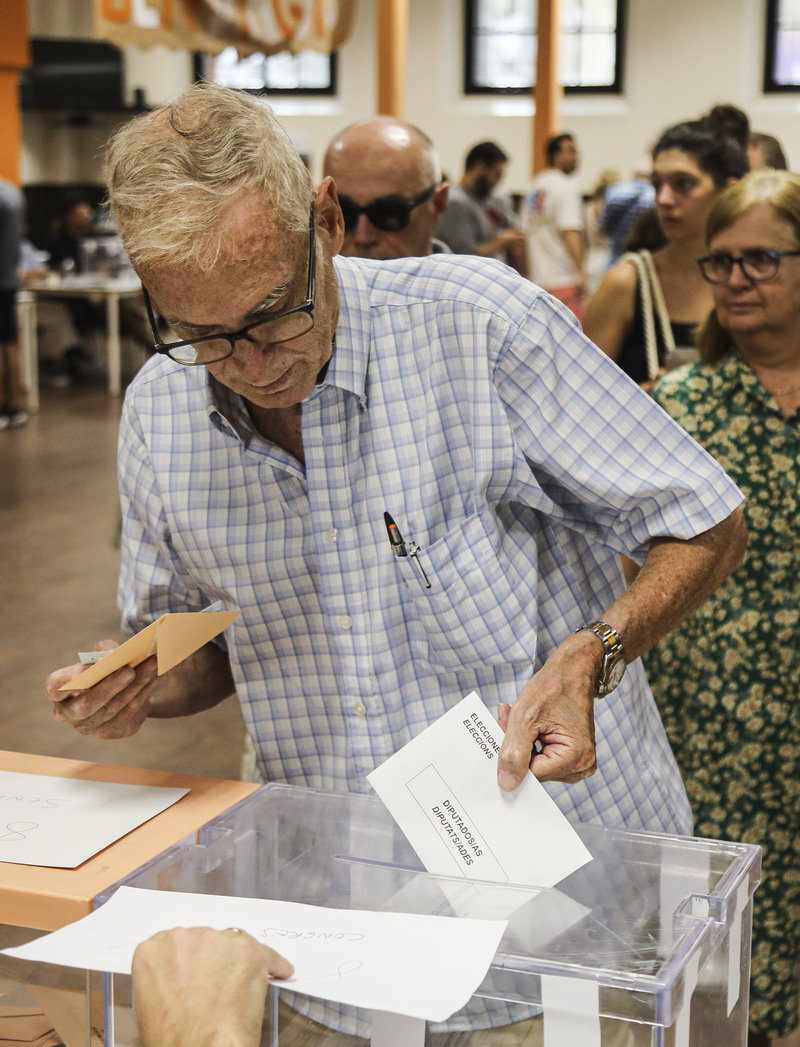THE LAST WORD
MAKE YOUR VOICE HEARD
At the time of writing, the official campaign period for the Catalan parliamentary election to be held this month has just kicked off. Democracy was absent for almost 40 years in Spain during the Francoist regime, but boy, are they making up for it now!
A year ago, on May 28, local elections were held all over Spain, which were followed by a general Spanish election on July 23. We will now have another election on May 12 to choose a new Catalan government (see our feature on page 10). No sooner will the ballot boxes be put away before it will be time to get them out again for the European election, which will be held in Spain on Sunday June 9.
With so much voting going on, we can only presume that we must have one of the healthiest democracies around, and as a consequence one of the most free and open societies on the planet. The other thing that comes to mind is that if Spain is so keen on voting, why should the idea of letting Catalonia vote on its sovereignty be such a no-no?
Forgive my cynicism but the whole voting issue is a sore point for me. As I have ranted about in previous columns – and at the risk of repeating myself – I think it is pretty disgraceful that I am allowed to pay taxes, own property, be legally responsible for underage Spaniards (my children), have a driving licence, or own a business, in other words to live my life as – and here I will repeat myself – a law-abiding taxpayer who is bringing up a new generation of taxpayers at my own expense and yet I am not allowed to vote because my passport is the wrong colour. The answer I argue (again) is not for people like me to be unwillingly forced to change our nationality (remember the part earlier about a democratic, free and open society) but simply to let legally resident foreigners vote in regional and state elections.
I swear I didn’t start this column intending to rant about my First World problems; the argument I wanted to make was that even if you don’t have a vote you can still make your voice heard. For example, you can have an impact by encouraging those who can vote to exercise their right, especially those who have no intention of doing so. You can join a political party or other organization that aligns with your position and help them to get their message out there. You can sign petitions – and with online petitions you don’t even have to leave the house – or give money to causes you believe in to put pressure on those in power. You can write letters to newspapers or start a podcast or YouTube channel arguing your point of view. You can go to demonstrations and protests. You can ’like’ and ’share’ social media posts that represent your political interests. Even without a vote you can participate in the political process. You can make your voice heard.
Addendum
For those British citizens who are resident in Spain, I don’t know about you but I only recently found out that the 15-year limit on voting for UK citizens living abroad - i.e. the system by which British citizens lose their right to vote in UK elections after living in a foreign country for 15 years or more - has ended. No matter how long you may have lived in Spain, your right to vote in UK elections has been restored, and all you have to do is register on the Gov.uk website. Surely this is good news and not least because it might stop me ranting so much about not having a vote.
Let’s be thankful for small mercies!
opinion


